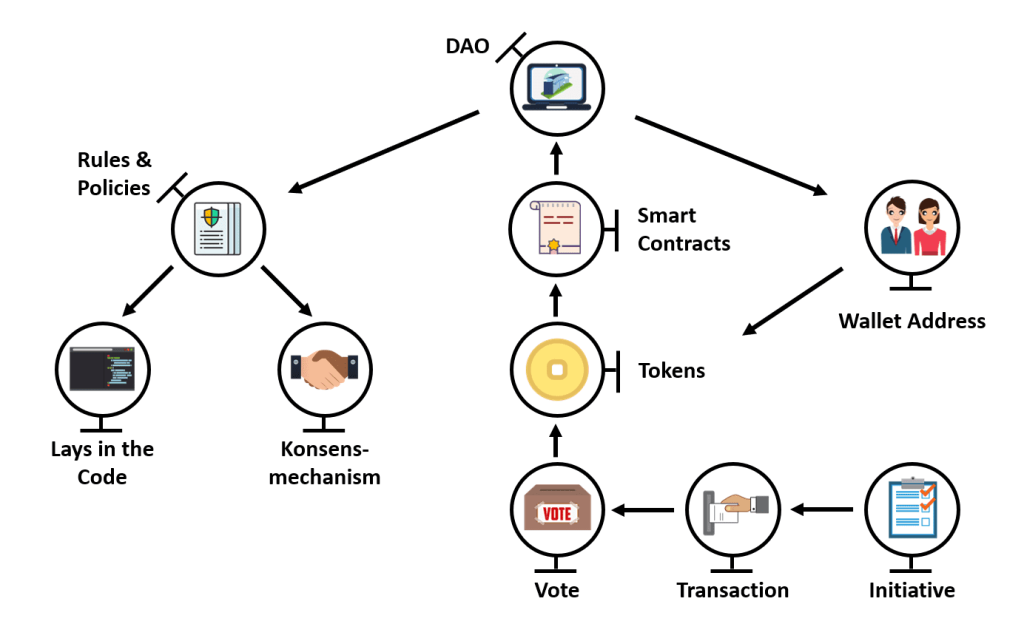
DAOs (Decentralized Autonomous Organizations) are organizations that are run through rules encoded as computer programs on a blockchain. They operate on a decentralized, transparent, and tamper-proof platform and are governed by members who hold tokens or digital assets representing ownership in the organization.
A DAO operates without the need for intermediaries such as banks, lawyers, or government agencies. Instead, members of a DAO use smart contracts to make decisions, allocate resources, and enforce rules. Members of a DAO can participate in decision-making, vote on proposals, and help to determine the direction of the organization.
DAOs have the potential to change the way organizations are structured and operated by providing a transparent, accountable, and decentralized alternative to traditional organizations. They can be used to create and manage a wide range of organizations, from decentralized financial services and investment funds to social networks and online marketplaces.
In summary, DAOs are decentralized organizations run on a blockchain and governed by members who hold digital assets representing ownership in the organization. They use smart contracts to make decisions, allocate resources, and enforce rules, and have the potential to change the way organizations are structured and operated.